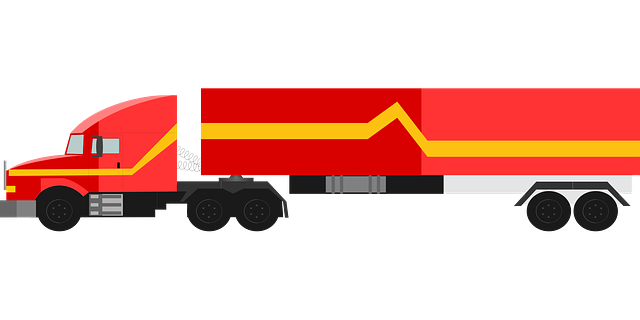In the digital age, technology has revolutionized cargo insurance for complex multi-truck cargo plans. Advanced software platforms replace manual processes, offering real-time tracking, efficient claims management, and data-driven policy creation. This transformation enhances transparency, enables proactive risk assessment, and improves overall supply chain resilience. However, challenges like data security and system integration require careful navigation to ensure a successful digital transition, benefiting all stakeholders involved in multi-truck cargo operations.
In today’s globalized logistics landscape, efficient management of multi-truck cargo plans is paramount. Technology plays a pivotal role in streamlining processes and enhancing visibility for insurers and shippers alike. This article delves into the world of digital solutions, exploring how they simplify cargo insurance tracking and optimize policy management for complex multi-truck operations. From automated data collection to real-time updates, we uncover the benefits and challenges, providing insights into navigating this evolving digital cargo insurance landscape.
Understanding Multi-Truck Cargo Plans: A Brief Overview

Multi-truck cargo plans are a specialized type of insurance designed for complex shipping operations involving multiple vehicles and loads. These plans offer comprehensive coverage for goods in transit, addressing the unique risks associated with long-distance or multi-leg transports. By pooling risks across several shipments or trucks, carriers can benefit from reduced costs and enhanced protection against potential losses.
In today’s digital era, technology plays a pivotal role in managing these complex policies efficiently. Advanced software platforms enable insurers and logistics companies to track cargo movements, monitor conditions, and quickly assess claims, ensuring a streamlined process. This digital transformation not only enhances transparency but also allows for real-time updates, quick decision-making, and improved overall management of multi-truck cargo plans.
The Role of Technology in Simplifying Cargo Insurance Tracking

In today’s digital era, technology plays a pivotal role in simplifying and enhancing the tracking process for cargo insurance policies, especially for complex multi-truck cargo plans. Traditional methods often involved manual data entry and paper-based documentation, leading to delays and potential errors. However, innovative digital solutions have revolutionized this landscape. By implementing advanced software platforms, insurers can streamline the entire process, from policy creation to claims management.
These technological advancements enable real-time tracking of cargo locations, providing a comprehensive view of the shipment’s journey. Sensors and GPS devices attached to vehicles offer precise data on position, temperature, and other critical parameters, ensuring that every step of the transportation process is meticulously recorded. This level of visibility not only simplifies claims processing but also empowers insurers to offer more tailored multi-truck cargo plans, catering to diverse industry needs.
Implementing Digital Solutions for Efficient Policy Management

Implementing digital solutions has revolutionized the way in which cargo insurance policies are managed, especially for complex operations involving multi-truck cargo plans. Traditional paper-based processes can be cumbersome and inefficient, leading to delays and potential errors. By leveraging technology, insurance providers can streamline policy creation, tracking, and claims management. Digital platforms allow real-time updates, ensuring all stakeholders have access to the latest information, which is crucial for coordinating multiple trucks and their respective cargoes.
These innovative systems enable efficient data capture and storage, including detailed cargo specifications, vehicle details, and insurance terms. Automated notifications can alert teams about policy renewals, upcoming expiration dates, or changes in cargo status, facilitating proactive management. With advanced analytics, insurers can identify trends, assess risks more accurately, and tailor policies to meet the unique needs of multi-truck operations, enhancing overall supply chain resilience.
Benefits and Challenges: Navigating the Digital Cargo Insurance Landscape

The digital transformation of cargo insurance offers both significant benefits and unique challenges, especially for managing multi-truck cargo plans. On one hand, technology enables real-time tracking of goods, enhancing transparency and efficiency throughout the supply chain. Digital platforms streamline policy management by simplifying paperwork, automating processes, and providing quick access to critical information. This improves operational visibility and allows insurers and shippers to make data-driven decisions.
However, navigating this digital landscape presents complexities. Ensuring data security and privacy is paramount, especially when dealing with sensitive shipping information. Integrating diverse systems and maintaining interoperability among stakeholders can be intricate. Moreover, adopting new technologies requires substantial investment in infrastructure and training to ensure a seamless transition for all parties involved in multi-truck cargo operations.
The digital transformation of cargo insurance, driven by advancements in technology, offers significant benefits for managing multi-truck cargo plans. By implementing efficient tracking and policy management systems, stakeholders can streamline processes, reduce errors, and enhance overall visibility. However, navigating this digital landscape presents challenges such as data security concerns and the need for industry standardization. As technology continues to evolve, embracing innovative solutions will be key to optimizing risk management for complex multi-truck cargo operations, ensuring a safer and more seamless logistics experience.
